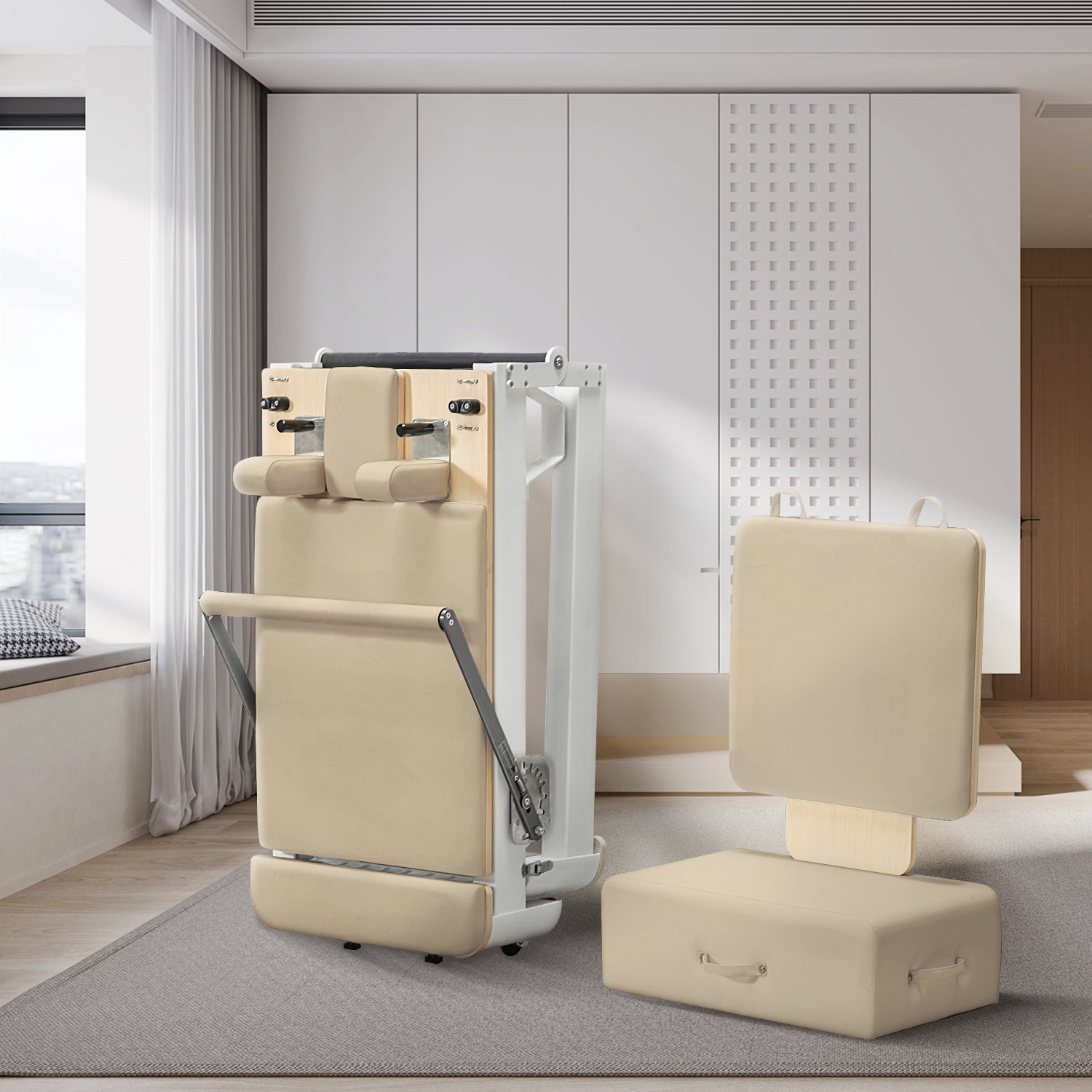Unlock the Secrets: Transform Your Pilates Practice with Reformer Magic!
Welcome to the world of Pilates reformer exercises, where traditional Pilates meets innovative equipment to enhance your practice. The Pilates reformer is a versatile apparatus designed to provide resistance and support, making workouts not only challenging but also accessible for individuals of all fitness levels. Whether you're a seasoned practitioner or new to Pilates, understanding the benefits of reformer exercises can help you achieve better alignment, build core strength, and improve overall flexibility. In this article, we will explore the essentials of the Pilates reformer, delve into various exercises you can perform, and share tips to maximize your workouts. By the end, you'll be inspired to incorporate these powerful exercises into your routine and unlock your full potential on the reformer.

Understanding the Pilates Reformer
The Pilates reformer is an ingenious piece of equipment that consists of a sliding platform (the carriage), adjustable springs for resistance, and various attachments such as straps and bars. Unlike mat Pilates, which relies solely on body weight for resistance, the reformer allows for a greater range of motion and facilitates movements that might be difficult on the mat. One of the key advantages of using a reformer is its ability to provide support for proper alignment, helping practitioners maintain correct posture throughout their exercises. This can be particularly beneficial for those recovering from injury or looking to refine their technique. The reformer also enables a dynamic workout experience, as the adjustable resistance can be tailored to each individual's strength and skill level, promoting both challenge and safety.
Essential Pilates Reformer Exercises
Now that we understand the importance of the reformer, let’s dive into some essential exercises that can elevate your Pilates practice. Each exercise targets different muscle groups, enhancing strength, flexibility, and coordination.
The Footwork Series
The Footwork series is often the foundation of any reformer workout. This sequence begins with the feet placed on the footbar, allowing practitioners to push the carriage in and out while focusing on controlled movements. The purpose of these exercises is to build foundational strength in the legs and engage the core. As you perform footwork, pay attention to your alignment, ensuring that your knees track over your toes and your lower back remains neutral. This series not only strengthens the legs but also prepares the body for more complex movements.
The Hundred
The Hundred is a classic Pilates exercise that can be performed on the reformer with the added benefit of resistance. This exercise involves lying on your back with your legs in a tabletop position while pumping your arms up and down. The goal is to engage your core while breathing deeply, making it a fantastic way to build endurance and stability. Beginners can modify this exercise by keeping their feet on the footbar or using a lighter spring, while more advanced practitioners can extend their legs for an added challenge. The Hundred not only develops core strength but also enhances circulation and warms up the body.
The Long Stretch Series
The Long Stretch series consists of a set of movements designed to engage the entire body, particularly the core and upper body. Starting in a plank position with hands on the footbar, you’ll push the carriage away and then pull it back in, focusing on maintaining a strong, stable core. This series improves stability and strength while also challenging your coordination. As you progress through the movements, remember to keep your hips level and your body in a straight line. This series is excellent for developing overall body awareness and control.
The Short Box Series
The Short Box series is a fantastic way to enhance flexibility and core strength. This series involves sitting on the short box placed on the reformer and performing various movements such as spine stretch, round back, and side bend. Each exercise emphasizes the importance of spinal alignment and control. As you perform these exercises, focus on articulating through the spine and engaging the core. This series not only improves flexibility but also strengthens the back and abdominal muscles.
Cool Down and Stretching Exercises
After an invigorating reformer workout, it’s crucial to cool down and stretch. Cooling down helps to prevent injury and aids in recovery. Stretching exercises such as the mermaid stretch and the hamstring stretch on the reformer can enhance flexibility and promote relaxation. Take your time with each stretch, allowing your muscles to lengthen and release tension. Incorporating these cool-down exercises into your routine will leave you feeling refreshed and ready for your next session.
Tips for Maximizing Your Reformer Workouts
To truly get the most out of your Pilates reformer sessions, consider these practical tips. First, prioritize form over quantity; ensure that each movement is performed with precision rather than rushing through repetitions. Proper breathing is also essential—exhale during exertion to engage your core effectively. Additionally, don’t hesitate to start with lighter resistance and gradually increase as your strength improves. Remember that progress takes time, so listen to your body and enjoy the journey of learning and enhancing your practice.
Final Thoughts on Embracing Reformer Exercises
In summary, Pilates reformer exercises offer a unique and effective way to enhance your Pilates practice. By understanding the reformer, exploring essential exercises, and implementing tips for maximizing your workouts, you can experience transformative results. Incorporating these exercises into your routine will not only improve your strength and flexibility but also deepen your connection to your body. So, whether you're a beginner or an experienced practitioner, take the leap and embrace the magic of the Pilates reformer for a balanced and powerful workout experience.








